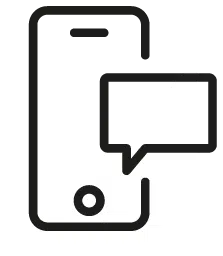Covid-19 impacts on Due diligence processes - how to conduct projects without losing efficiency?
By Andre Bueno

Due to the global pandemic of the new coronavirus, we are experiencing new times, influencing the way we relate ourselves. Social isolation and other restrictive measures have had significant impacts on the global economy, also with reflects on the Brazilian economy.
Thus, companies and professionals must adapt to what is being conventionally called the “new normal” and, in addition to changing the way we will work and relate, we must address properly emerging issues.
Analyzing the M&A processes during the COVID-19 pandemic period, we have already noticed impacts on the Due Diligence processes, and which is very likely continue from now on:
- Historical performance analysis: Financial performance during the pandemic period should not be considered as recurring, as it does not reflect business in the perpetuity and recurring scenarios. Establishing assumptions to normalize and project results eliminating the effects of the crisis may not be the best way due to a high degree of subjectivity involved. An alternative approach might be the use of normalized historical performance as a basis for analysis, excluding periods whose results would not be treated as recurring.
- The “New Normal”: It is expected that the negative financial impacts of the crisis will be overcome in a moment of economic recovery. However, potential changes in consumption habits would be a guide for business transformation. Thus, for certain industries and segments, we must consider the new financial and business aspects, isolating permanent from temporary impacts.
- Face-to-face visits: Historically, face-to-face visits have been considered essential for some transactions. In addition to allowing greater contact between potential business partners, in loco access impacts the level of depth, clarity and precision of some analyzes, mainly from an operational due diligence standpoint. However, virtual access to data has been a widespread practice for many years, which with social isolation measures was enough to comply with the needs of this stage of the process and, even after gradual relaxation, due diligence exercises will very likely follow this pattern, observing criteria and protocols to ensure the safety of the professionals involved.
- Incentive measures announced by the local Government: the eventual adoption of government incentive measures by companies should be carefully analyzed, as they will certainly have an impact on valuation. These measures may range from the flexibility of labor laws, such as the reduction of working hours, to the extension of payment of taxes and contributions.
Although each transaction has its process negotiated and agreed between the parties to allow a proper access to information and build a positive environment for a favorable outcome of the transaction, what would be the ideal model or what are the Golden Rules we may recommend under the current scenario?
Based on our experience, we highlight some measures that might be considered, aiming at the efficiency of due diligence processes, based on four pillars:
- Confidentiality: Due diligence processes are extremely sensitive and involve the handling of confidential and strategic data. Confidentiality policies and rules must be clear to the entire team involved. In addition, the context of the operation must be considered to determine the level of information to be shared.
- Coordination: A due diligence process is carried out in a very short period of time, so it is important to put together tools to enable and ensure the efficiency and productivity of the teams involved. The planning of activities is essential for the success of the project, being essential the definition of roles and responsibilities, as well as the frequency of meetings. Timely communication, early discussions of emerging issues and progress reporting of the project should be in the top of the agenda.
- Focal point: The ability to extract efficiently quality information is key to ensure agility during the due diligence process and support a robust report. Thus, it is important to ensure the involvement of the right people, choosing focal points, preferably leaders, especially in the data collection phase and during the main interviews.
- Connectivity: As mentioned, part of the due diligence process already takes place virtually and in times of isolation it has become quite mandatory. It is important that adequate connectivity tools are available, ensuring teams proper access to information without harming the project goals. The use of virtual data rooms will continue to be adopted, as such tool allows the implementation of both data protection and access control protocols, protecting confidentiality.
A positive aspect that we have observed is that due diligence processes have not stopped, and for that, necessary adaptations have been put in place to allow the continuity of projects. We should be creative and stay safe as long as social isolation measures remain in place.
Andre Bueno is a Transaction Partner at HLB Brasil.







